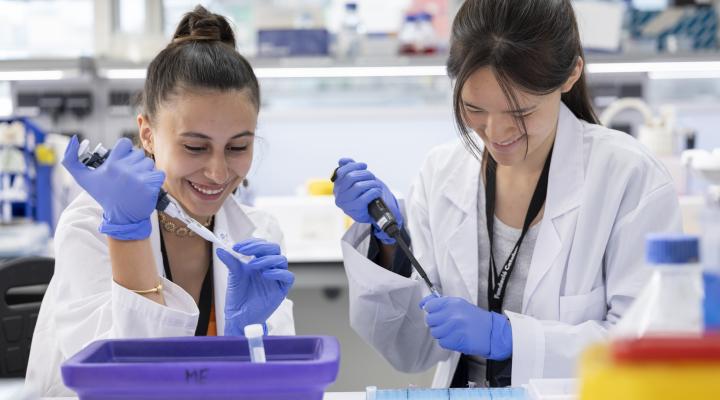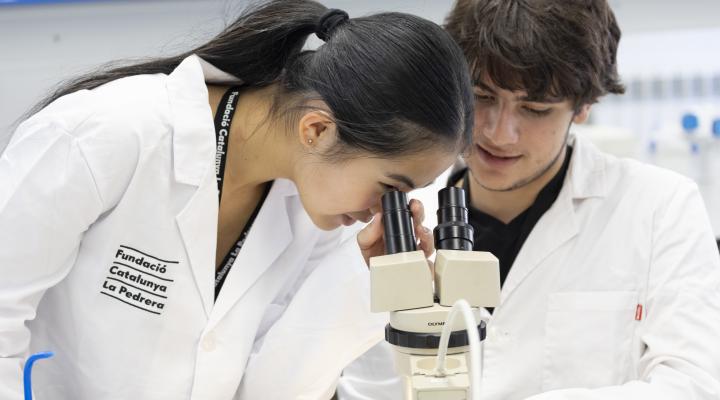
BIYSC
This international program is looking for young students from around the world who are passionate for science and Technology with the aim of stimulating their talent and promoting their vocation for scientific and technological research. During two weeks in July, around 150 young students of 10th to 12th High School grade will gather in Barcelona and have the opportunity to work on the science and technology challenges proposed by scientists at top-ranked research centres, universities and hospitals.
BIYSC 2025 will take place from July 7th to 18th.
In each edition, a dozen research projects are offered covering a wide range of STEM topics from chemistry, medicine, molecular biology, computer science, physics, genetics to biotechnology, biomedicine, astrophysics, architecture, engineering, and bioinformatics.
Check all the details on the program's website!
- Studying 10th - 12th high school grade (aged between 15 and 18 years old) during the Program.
- Good academic record, which must be accompanied by an eagerness and motivation to participate in the program. We are looking for talented and curious young people who, apart from having good academic results, have a genuine interest for scientific research.
- Good command of English language.
- Intention to pursue a career in science.
- Commitment to take the most of the opportunities offered by the program.
We are looking for young people who are interested, curiousabout and committed to science. To find the right candidates, we are guided by the letter of motivation written by the students who apply, where we expect them to show an interest in science and provide details of their personal and school projects (hobbies, participation in science fairs and competitions, awards received, reading habits, musical instruments, etc.) and anything else they think makes them the perfect candidate for this opportunity. The answers to the questions on the application form are also important, as well as the student’s academic record, and the evaluation given by the teachers in charge of recommendations.
English is very important in science, and it is the only vehicular language used during the program. Therefore, it is an essential point for the selection and absolutely necessary to attend BIYSC.
Collaborating entities




The Barcelona Institute of Science and Technology is a leading institution of multidisciplinary research encompassing seven Catalan research centres of excellence. By fostering collaboration among members of its diverse scientific community, BIST plays a leading role in pushing the frontiers of science while becoming a global reference for training outstanding research talent.
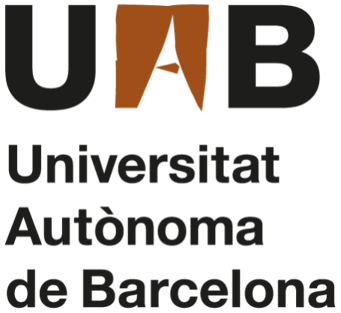

The Department of Mathematics, which is part of the UAB Faculty of Science, is the fundamental structure responsible for organising and developing research and knowledge transfer among its academic staff and its research staff in training. The Department is also responsible for teaching mathematics and statistics in centres, faculties and schools at the UAB, in accordance with their requirements and the teaching programmes in place, and is responsible for organising and developing doctoral and postgraduate programmes and courses.
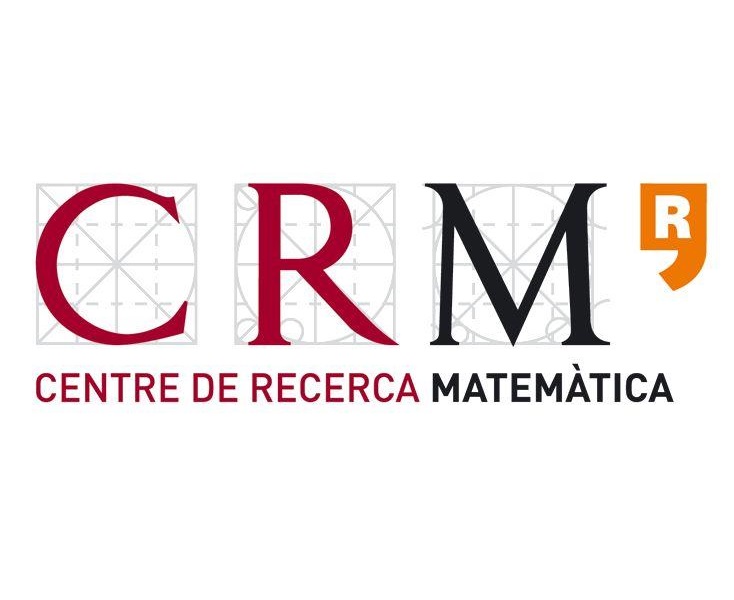

The CRM, established in 1984, has as a mission statement to “improve research and advanced training in Mathematics, in collaboration with Universities and other research institutions in Catalunya”.
This concretises in three aspects:
- Attract recognized mathematicians to the Catalan R+D system, enhance collaborative interdisciplinary research, and promote research training at all levels.
- Support the local community in the international arena, by hosting visiting researchers from all over the world and organizing scientific events of various formats.
- Transfer mathematical knowledge and technology to society.
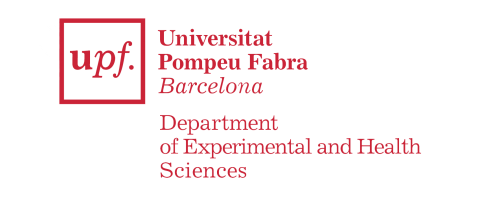

The Department of Experimental and Health Sciences (DCEXS) of Pompeu Fabra University combines the creation and transfer of knowledge through the seamless integration of research and teaching. Innovation in education and research excellence are the cornerstones of our efforts.
The DCEXS hosts 35 research groups divided into eight distinct programmes spanning a wide range of topics, from molecular biology to public health.
In addition to the research, the DCEXS offers four undergraduate programmes, five master’s degrees and a PhD programme in Biomedicine. The DCEXS is strategically located within Barcelona’s Biomedical Research Park.
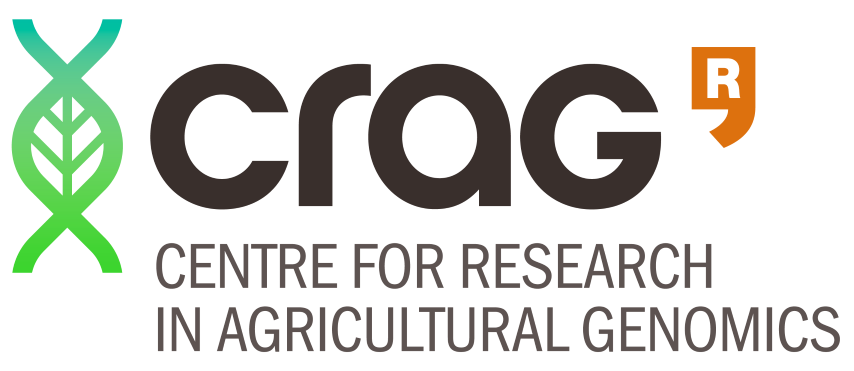

The Center for Research in Agricultural Genomics (CRAG) is an independent organization established as a Consortium of four main research institutions: the Spanish National Research Council (CSIC), Institute of Agrifood Research and Technology (IRTA), Autonomous University of Barcelona (UAB), and University of Barcelona (UB), and receives support from the Government of Catalonia through its General Direction for Research. The centre is a multidisciplinary research centre dedicated to studying genetic factors which determine characters of interests in plants and farm animals. Basic research is conducted under scientific criteria of excellence and research towards the improvement of plants and animals used in the food industries.




The Polytechnic University of Catalonia · BarcelonaTech (UPC) is a public institution focusing on research and higher education in the fields of engineering, architecture, science and technology, and is one of the leading polytechnic universities in Europe. It awards degrees to over 6,000 undergraduate and Master's students every year, in addition to over 500 PhDs. It is one of the universities with the highest rates of employment for recent graduates: 93% are in work and 76% find work in less than 3 months. The UPC ranks highly in leading international rankings.


Pompeu Fabra University was founded in 1990 by the Government of Catalonia with the aim of establishing a public university of academic excellence, one that contributes to the development of the country. In order to achieve this, over the last few years the UPF has implemented strict quality criteria across all its activities, and has formed an urban university model that is closely linked to the city of Barcelona. As a university, the UPF has been selective in the areas of knowledge it has incorporated, in order to be able to focus primarily on research and training different facets of human nature, including biological, communicative and social aspects. The size of the institution, which has been maintained despite its growth, has become one of its hallmarks. It is an eminently positive feature, as the university runs at an ideal scale to build a cohesive university community, in which academic units and different departments and units feel part of the same institution and share the same values.
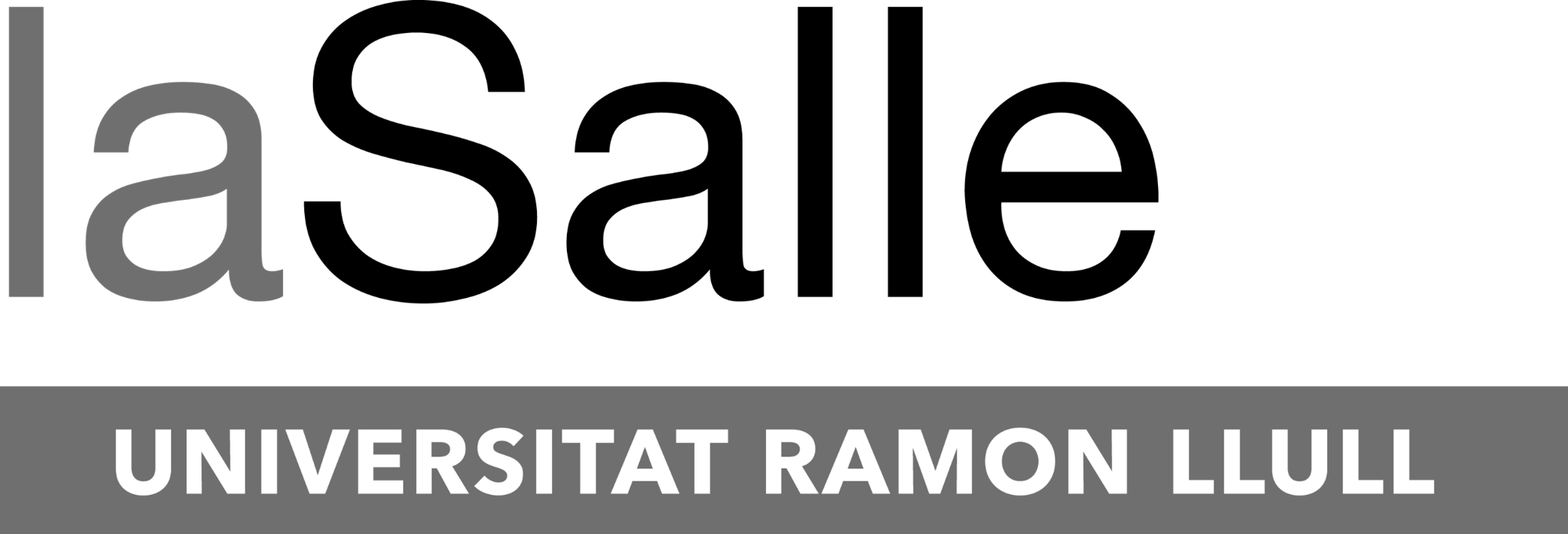

La Salle is an institution with over 300 years of history and a wide international presence. It is pioneering in the way it offers educational choices that adapt to the needs of the market and society.


The Autonomous University of Barcelona (UAB) is a public university, rooted in the territory with an international vocation. Through quality teaching closely linked to research activity, it transfers scientific, technological, cultural and educational knowledge to society, promotes the potential of its human capital and manages the available resources responsibly. It is a knowledge ecosystem, in which the institutions linked to the UAB coexist and collaborate, consolidating this university among the leaders in the world rankings.
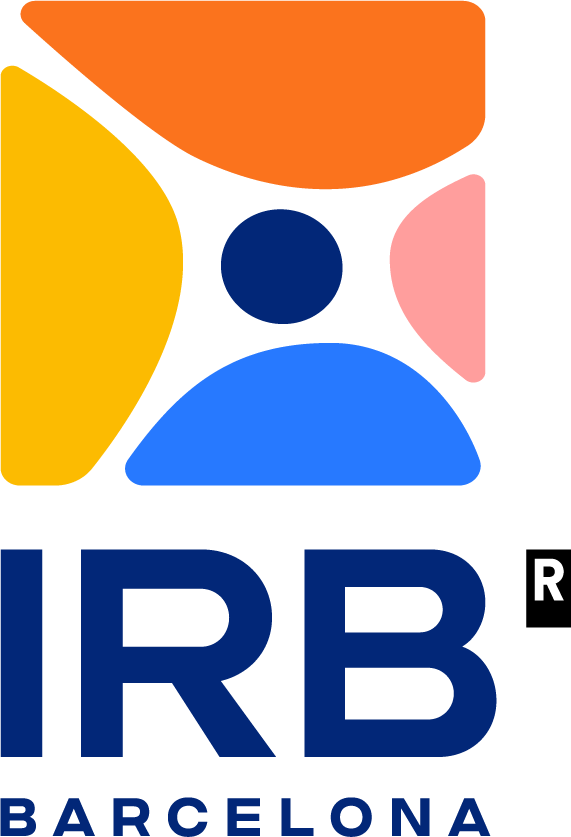

The Institute for Research in Biomedicine (IRB) Barcelona is an internationally renowned research centre located in Barcelona Science Park and dedicated to understanding fundamental questions about human health and diseases. IRB Barcelona is part of the Barcelona Institute of Science and Technology, and the goals of the institute include conducting multidisciplinary research of excellence in a framework between biology, chemistry and medicine, offering its members, students and visitors high-level training in the field of the biosciences. It also provides an innovation component through active technology transfer as benefit to society, as well as engaging with the public through engagement and education activities. Research at IRB Barcelona is carried out by 26 groups working in common with the common goal of carrying out multidisciplinary projects that address important biomedical problems affecting our society.
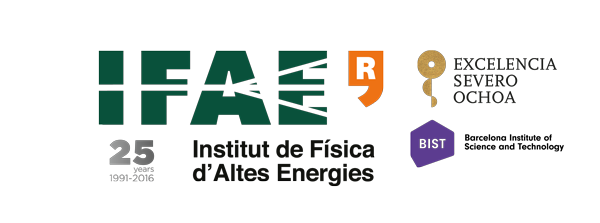

The Institute of High Energy Physics (IFAE) is a research centre at the Autonomous University of Barcelona (UAB) that carries out leading theoretical and experimental research in fundamental physics, which includes particle physics, astrophysics, and cosmology. It works at the forefront of detection technology, in order to put the knowledge of the scientific community at the service of practical goals. The IFAE is a participant in the LHC's ATLAS project, the T2K neutrino experiment in Japan, the MAGIC telescopes in La Palma, and the Dark Energy Survey in Chile, among others. The IFAE is also working at the forefront of sensing technologies by developing pixels detectors for high-energy physics, telescope cameras, detectors with medical applications and other scientific and industrial applications. The centre has its own researchers, as well as working with professors from the UAB and the Catalan Institute for Research and Advanced Studies (ICREA) and technical staff.
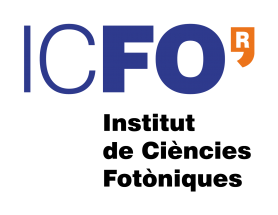

The Institute of Photonic Sciences (ICFO) is a young research institution whose goal is to push the boundaries of knowledge of photonics, science and light technology. Photonics is the field of knowledge dedicated to the generation, transmission, detection, control and manipulation of light, and is one of the key technologies for the 21st century. Light, specifically laser light, is one of the most promising technologies available to humanity today. Its research programmes are framed on world-class frontiers and are aimed at addressing the significant challenges facing society at large. They focus on current and future problems in health, energy, information, security, protection and care of the environment. The role of photonic technologies is very important across a wide range of fields, including agriculture and the environment, manufacturing and manufacturing processes, telecommunications systems and services, medicine and healthcare, life sciences, security and entertainment, among others.
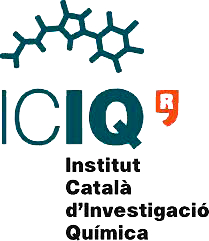

The Catalan Institute of Chemical Research (ICIQ) aims to promote and carry out research of excellence in chemistry. The institute aims to produce, promote and share knowledge, as well as train technical and scientific personnel in chemistry, transfer technology to industry, facilitate contact between basic and applied research and establish collaborations between the ICIQ and companies.
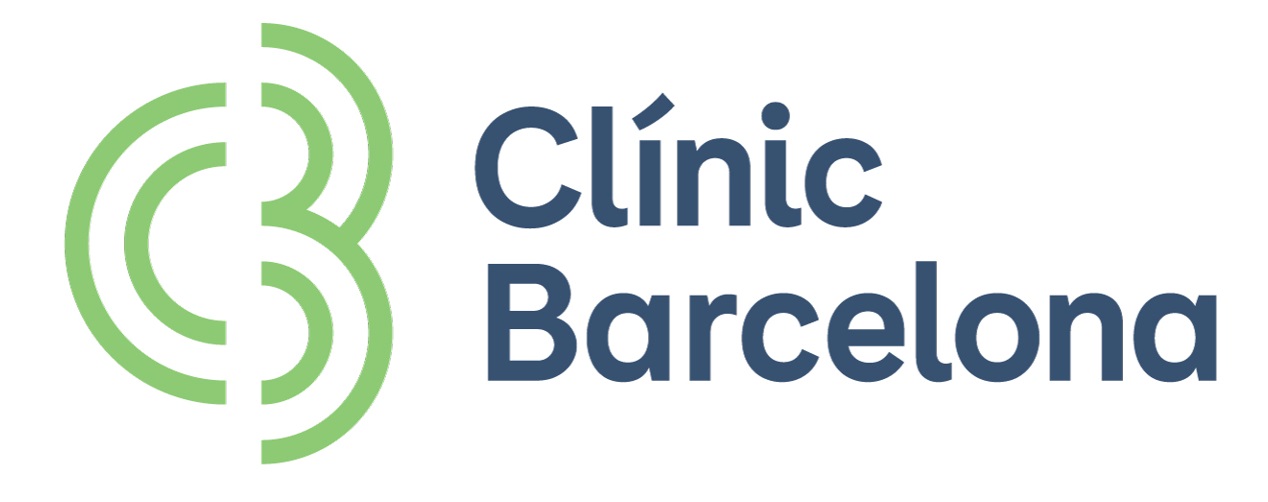

The Hospital Clínic de Barcelona is a university public hospital with a centuries-long history. With a workforce of 4,500 professionals, it is one of the leading healthcare centres in Spain and the leader in scientific production. It offers high-quality care, biomedical research of the highest level of competitiveness, and great teaching dedication to training professionals. All of this is part of the excellence of balanced management, with the aim of providing society with cutting-edge humanised medicine.


The Barcelona Supercomputing Centre (BSC) is the national supercomputing centre in Spain. As a research centre, we participate in more than 400 research projects and as a scientific facility we serve the scientific community and the international industry. With more than 500 R&D experts and professionals from all over the world, BSC is a centre that attracts talent. Our research focuses on four fields: Computational Sciences, Life Sciences, Earth Sciences and Computer Applications in Science and Engineering. The BSC Consortium is formed by the Ministry of Economy, Industry and Competitiveness of the Government of Spain (60%), the Department of Business and Knowledge of the Government of Catalonia (30%) and the Polytechnic University of Catalonia (10%).
